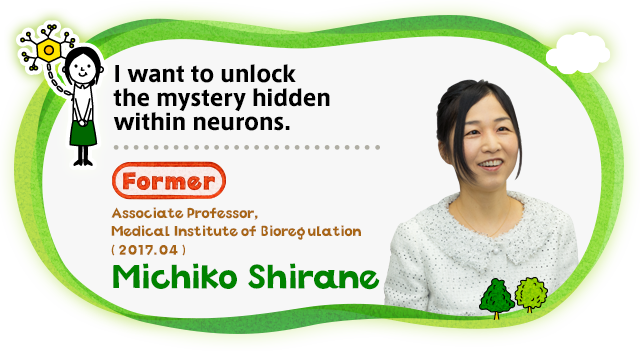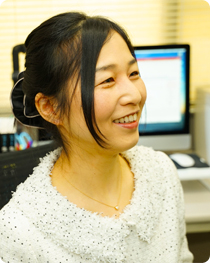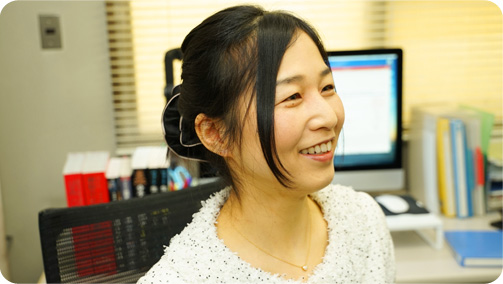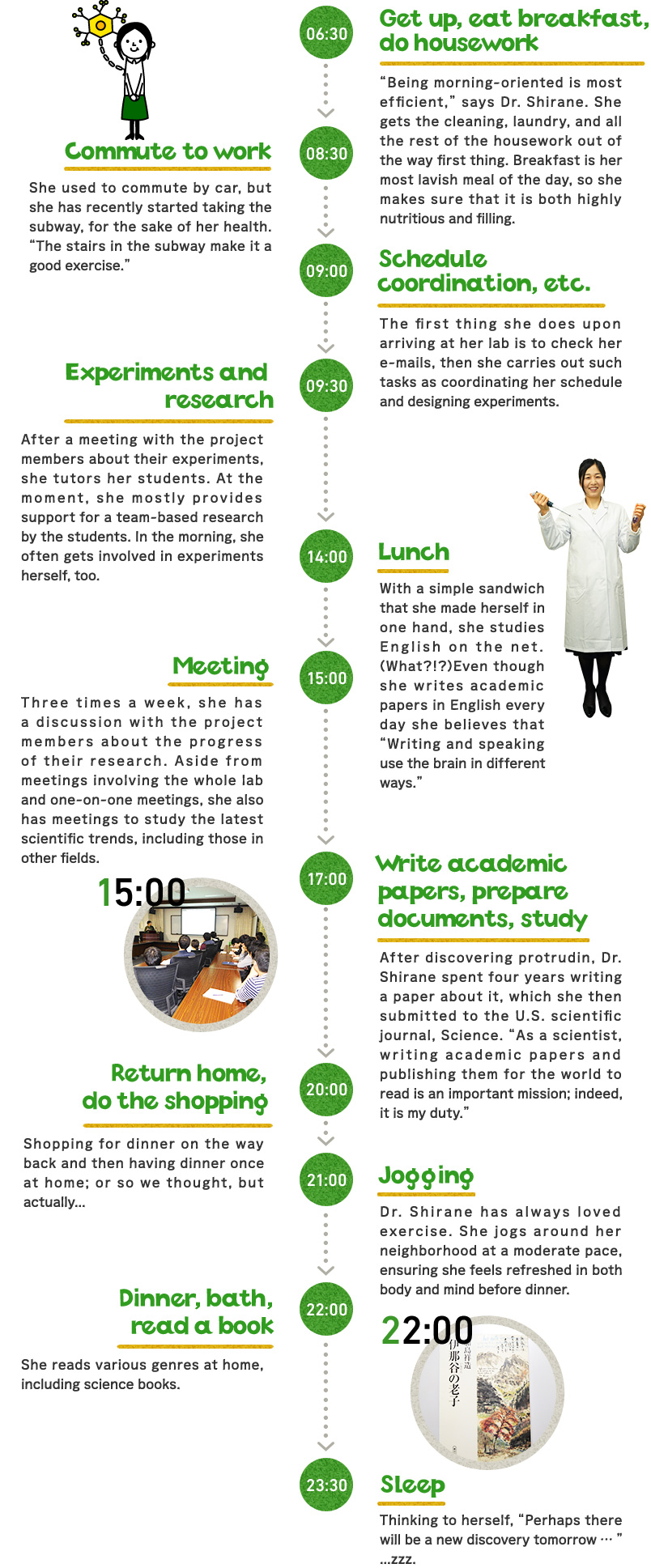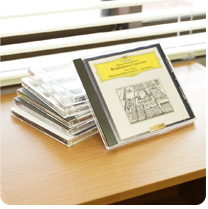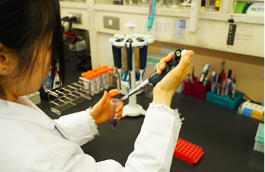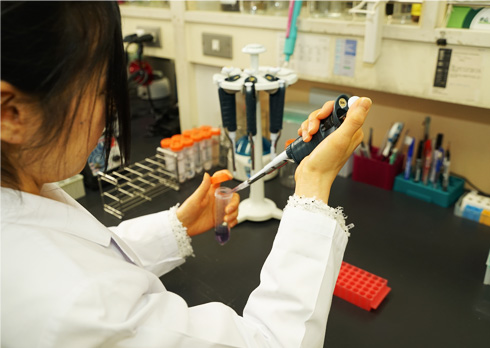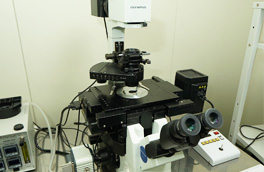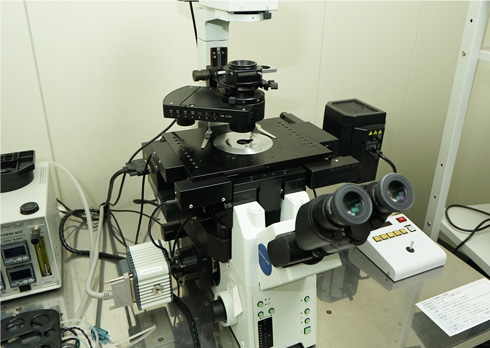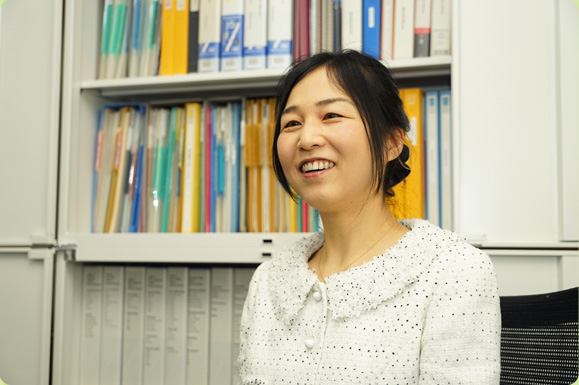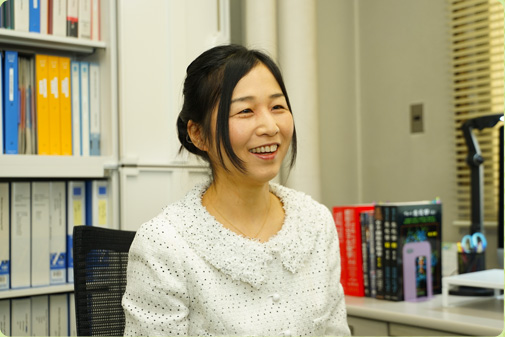 Dr. Shirane was speaking cheerfully.
Dr. Shirane was speaking cheerfully.
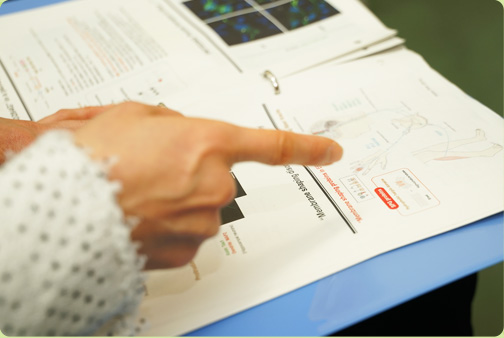 She explained the mechanism of neurons pointing the papers.
She explained the mechanism of neurons pointing the papers.
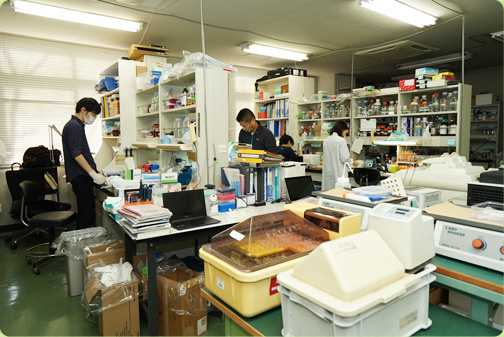 The staff in this laboratory have detected the data steadily every day.They discover new data relating to protrudin.
The staff in this laboratory have detected the data steadily every day.They discover new data relating to protrudin.
 Dr. Shirane was speaking cheerfully.
Dr. Shirane was speaking cheerfully.
The bodies of animals (including humans) contain various types of cells; of these, the neurons in the brain are particularly special. For instance, they have a unique shape, with long projections called neurites, which can be up to a meter in length. It is thanks to these projections that neurons at the top of the head can send signals and information all the way to our hands and feet. Neurotransmitters secreted by the neurons are carried along the projections, enabling information to be exchanged with other cells. Information is communicated from the head to the rest of the body and also exchanged within the brain. In other words, the actions of the brain and body (movement, perception, memory, thinking, emotion, etc.) are controlled by this information transmission network.
 She explained the mechanism of neurons pointing the papers.
She explained the mechanism of neurons pointing the papers.
Within neurons, neurotransmitters and other signaling molecules are transported through the long projections in the proper direction and at the proper time. My research aims to shed light on this sophisticated transport mechanism, about which so little is yet known.
 The staff in this laboratory have detected the data steadily every day.They discover new data relating to protrudin.
The staff in this laboratory have detected the data steadily every day.They discover new data relating to protrudin.
In 2006, I discovered protrudin, a new protein that promotes neurite outgrowth and transport within neurons. By researching its molecular mechanism, I discovered that genetic mutations in protrudin cause damage to neurites. It has been proven that this leads to a neurodegenerative disorder paralyzing the limbs. Mice generated to be deficient in protrudin experienced the onset of depression-like symptoms, so we also know that protrudin is involved in transporting secreted neurotransmitters (e.g. dopamine and serotonin) themselves.
Right now, my research involves investigating the mechanisms and pathologies that explain what function protrudin has in the transport system within neurons and why mutation in this gene leads to neurological disorders. To do so, I conduct experiments that make full use of experiments using mutant mice, drawing upon knowledge from the fields of biochemistry, genetics, and cellular biology. I primarily do basic research, seeking to shed light on mechanisms within neurons, but I hope that this will become useful in the field of medicine, by assisting in identifying the causes of relevant neurological disorders and developing applications to treat or prevent them.


The central nervous system is the most complex part of a living organism's body and there are many things that we do not understand about its workings and mechanisms. They are a mystery precisely because we do not understand them, so pursuing the answers to the questions "Why? How?" opens up an endless array of possibilities. This is because the two things that drive me and form the basis of my research are questions and a sense of curiosity. I feel reassured when something whose true character is unknown is proven scientifically. I find it tremendously enjoyable when the experiments and research that I steadily conduct every day turn out to be linked to things that we do not yet understand. The journey after that point is still long, though. <Laughs> When, after finding protrudin by chance, I discovered the growth of projections only seen in neurons, I was very excited.
At the same time, progress in science and technology has been spectacular in recent years and cutting-edge research is in the process of revealing what the nerve circuit looks like, in terms of the direction in which the neurite of a neuron is pointing. As a result, we are progressively untangling such knotty problems as the pathology of psychiatric disorders and the mechanisms controlling emotion. The most appealing thing for me is coming into contact with deeply interesting topics in such front-line environments.
![]()
![]()




